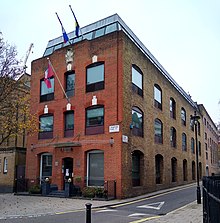
Antigua and Barbuda is a sovereign island country in the Caribbean. It lies at the conjuncture of the Caribbean Sea and the Atlantic Ocean in the Leeward Islands part of the Lesser Antilles.

The politics of Antigua and Barbuda takes place in a framework of a unitary parliamentary representative democratic monarchy, wherein the sovereign of Antigua and Barbuda is the head of state, appointing a governor-general to act as vice-regal representative in the nation. A prime minister is appointed by the governor-general as the head of government, and of a multi-party system; the prime minister advises the governor-general on the appointment of a Council of Ministers. Executive power is exercised by the government. Legislative power is vested in both the government and the two chambers of the Parliament. The bicameral Parliament consists of the Senate and the House of Representatives.
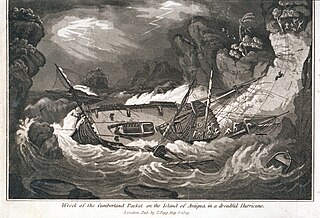
The history of Antigua and Barbuda covers the period from the arrival of the Archaic peoples thousands of years ago to the present day. Prior to European colonization, the lands encompassing present-day Antigua and Barbuda were inhabited by three successive Amerindian societies. The island was claimed by England, who settled the islands in 1632. Under English/British control, the islands witnessed an influx of both Britons and African slaves migrate to the island. In 1981, the islands were granted independence as the modern state of Antigua and Barbuda.

The Lesser Antilles are a group of islands in the Caribbean Sea. They are distinguished from the large islands of the Greater Antilles to the west. They form an arc which begins east of Puerto Rico and swings south through the Leeward and Windward Islands almost to South America and then turns west along the Venezuelan coast as far as Aruba. Barbados is isolated about 100 miles east of the Windwards.

The British West Indies (BWI) were colonised British territories in the West Indies: Anguilla, the Cayman Islands, Turks and Caicos Islands, Montserrat, the British Virgin Islands, Antigua and Barbuda, The Bahamas, Barbados, Dominica, Grenada, Jamaica, Saint Kitts and Nevis, Saint Lucia, Saint Vincent and the Grenadines, British Guiana and Trinidad and Tobago. Other territories included Bermuda, and the former British Honduras.
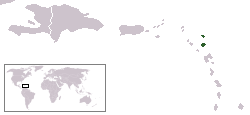
The following is an alphabetical list of topics related to the nation of Antigua and Barbuda.

Antigua, also known as Waladli or Wadadli by the native population, is an island in the Lesser Antilles. It is one of the Leeward Islands in the Caribbean region and the most populous island of the country of Antigua and Barbuda. Antigua and Barbuda became an independent state within the Commonwealth of Nations on 1 November 1981.

The term British West Indies refers to the former English and British colonies and the present-day overseas territories of the United Kingdom in the Caribbean.

The monarchy of Antigua and Barbuda is a system of government in which a hereditary monarch is the sovereign and head of state of Antigua and Barbuda. The current Antiguan and Barbudan monarch and head of state, since 8 September 2022, is King Charles III. As sovereign, he is the personal embodiment of the Crown of Antigua and Barbuda. Although the person of the sovereign is equally shared with 14 other independent countries within the Commonwealth of Nations, each country's monarchy is separate and legally distinct. As a result, the current monarch is officially titled King of Antigua and Barbuda and, in this capacity, he and other members of the Royal Family undertake public and private functions domestically and abroad as representatives of Antigua and Barbuda. However, the King is the only member of the Royal Family with any constitutional role.

The following outline is provided as an overview of and introduction to Antigua and Barbuda:
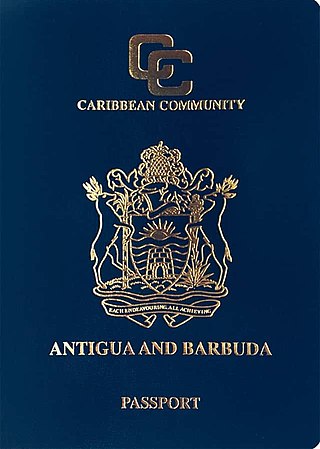
Antiguan and Barbudan passports are issued to nationals of Antigua and Barbuda for international travel. The passport is a CARICOM passport as Antigua and Barbuda is a member of the Caribbean Community.
Antiguans and Barbudans in the United Kingdom are residents or citizens of the United Kingdom who can trace their roots to Antigua and Barbuda.

The historical ties between the governments of Barbados and the United Kingdom of Great Britain and Northern Ireland (UK) are long and complex, including settlement, post-colonialism and modern bilateral relations. The two countries are related through common history spanning 339 years (1627–1966). Since the Barbadian date of political independence, these nations continue to share ties through the Commonwealth of Nations. Until becoming a Commonwealth republic in 2021, Barbados also shared the same Head of State, with Queen Elizabeth II as their Monarch.
Antigua State College is a public tertiary institution in Antigua and Barbuda, with 1,000 students enrolled in several programs. The college consists of several departments such as the Advanced Level, Department of business, engineering, department of undergraduate studies, teacher education (offsite) and school of pharmacy (off-site).
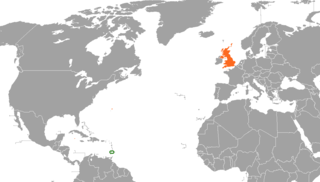
Saint Vincent and the Grenadines and the United Kingdom have a long history, tracing back to early British settlements and British conflicts with the French during the Colonial era.
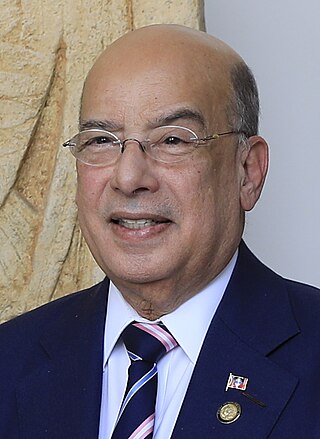
Sir Ronald Michael Sanders is an Antiguan Barbudan diplomat, academic, former broadcast-journalist, and the current Ambassador Extraordinary and Plenipotentiary to the United States and to the Organization of American States (OAS) since 2015. He holds the unique distinction of being the first person, since the OAS enlarged its membership in 1962, to serve as Chairman of the Permanent Council of the OAS for an unprecedented three terms. He completed his highly successful third term on December 31, 2023, having played a widely recognized role in guiding the work of the Permanent Council in the peaceful transition of government in Guatemala on 14 January 2024.

The head of state of both Belize and the United Kingdom is Charles III, who holds the title King of Belize. Both nations are members of the Commonwealth of Nations and the United Nations.
Antiguan and Barbudan nationality law is regulated by the 1981 Constitution of Antigua and Barbuda, the various Antigua and Barbuda Citizenship Acts, the Millennium Naturalisation Act of 2004, and various British Nationality laws. These laws determine who is, or is eligible to be, a national of Antigua and Barbuda. Antiguan and Barbudan nationality is typically obtained either on the principle of jus soli, i.e. by birth in Antigua and Barbuda; or under the rules of jus sanguinis, i.e. by birth abroad to a parent with Antiguan or Barbudan nationality. It can also be granted to persons with an affiliation to the country, by investment in the country's development, or to a permanent resident who has lived in the country for a given period of time through naturalisation. Nationality establishes one's international identity as a member of a sovereign nation. Though it is not synonymous with citizenship, rights granted under domestic law for domestic purposes, the United Kingdom, and thus the commonwealth, has traditionally used the words interchangeably.

Squatting in the island country of Antigua and Barbuda in the West Indies is the occupation of unused land or derelict buildings without the permission of the owner. Historically, native Barbudans were seen as squatters and after Hurricane Irma in 2017, Prime Minister Gaston Browne offered people he termed squatters the chance to buy their land.
Royal tours of Antigua and Barbuda by its royal family have been taking place since the 20th century. Elizabeth II, Queen of Antigua and Barbuda, visited the country thrice: 1966, 1977, and 1985.

